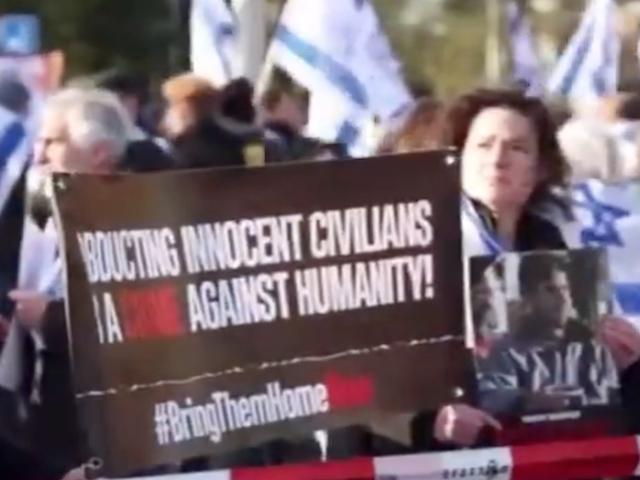In a recent interview with the BBC, Hamas political official Basim Naim revealed that the organization is currently unable to provide a comprehensive list of living hostages. Speaking from Istanbul where the Turkish government of Recep Tayyip Erdoğan hosts officials from the Terror group, Naim explained that due to the chaotic circumstances stemming from the Israeli bombardment and the blockade's severe conditions, it is now impracticable to ascertain the exact status of those held captive. The disruption has led to uncertainty regarding who among the hostages has survived, who has perished in the conflict, or who has succumbed to starvation.
Naim emphasized that the hostages are dispersed across various locations and under different factions' control. This fragmentation has prompted Hamas to demand a ceasefire, aiming to facilitate data collection and clarify the hostages' fates. He reiterated Hamas's preconditions, insisting on an end to hostilities and a full withdrawal of the Israeli Defense Forces (IDF) from Gaza as prerequisites for any agreement.
Naim adds that the hostages “are in different areas with different groups and therefore we have called for a ceasefire to be able to collect the data.”
— Lazar Berman (@Lazar_Berman) March 4, 2024
He repeats the Hamas demand that it will not agree to a deal without an end to the war & full withdrawal of the IDF from Gaza.
Current estimates suggest that approximately 130 individuals remain in captivity under Hamas. This figure includes three hostages tragically killed by the IDF in a case of mistaken identity. So far, the remains of 11 hostages have been recovered by authorities, and the IDF has acknowledged 31 deaths based on intelligence reports.
During a ceasefire in late November, a total of 105 civilians were released from Hamas's grasp in exchange for 240 Palestinian prisoners. Prior to this exchange, four hostages had been released, and three were rescued by military forces. Additionally, the IDF has managed to recover the bodies of 11 hostages, including those killed inadvertently by its own actions. One individual has been missing since October 7, with their fate still unknown.
Dr Basem Naim Hamas' Spokesman Interview on Gaza War, October 7, Hostage Exchange, Jews and More https://t.co/VTNgs8dtne via @BitChute pic.twitter.com/3GBEK2w9LW
— Jan Kerkoff Pure Blood Follow Back (@JanKerkoff) November 25, 2023
Hamas also holds two Israeli civilians, Avera Mengistu and Hisham al-Sayed, believed to be alive after voluntarily entering Gaza in 2014 and 2015, respectively. The organization is also in possession of the remains of fallen IDF soldiers Oron Shaul and Hadar Goldin since 2014.
In the ongoing negotiations for a ceasefire and the release of hostages, Hamas has provided international mediators in Cairo with a list of Palestinian security prisoners it seeks to have released in exchange for the Israeli hostages. Reports from Al-Arabiya, citing a Hamas source, indicate that the group has also demanded the return of 500 families to northern Gaza during the ceasefire.
A U.S. Hostage Rescue Operation in Gaza Should Not Be off the Table https://t.co/LbcbN6XXFa
— Pradheep J. Shanker (@Neoavatara) March 4, 2024
Significant advancements in the Cairo talks on a Gaza ceasefire have been reported by Egyptian news outlet Al-Ghad, citing an informed source. The Wall Street Journal has also mentioned the possibility of reaching an agreement before Ramadan, based on statements from an Egyptian official and a senior Hamas official, who suggested the first week of the Muslim holiday as a more feasible timeline for a deal.
However, a Hamas official disclosed to the Wall Street Journal that finalizing a deal by Ramadan seems improbable, pointing to the first weekend of the month-long holiday as a more likely timeframe.
Israel refrained from sending a negotiation team to Cairo following an unsatisfactory response from Hamas concerning the latest negotiation framework established in Paris. The group has not met Jerusalem's demands for a list of living hostages or specified the number of Palestinian prisoners Israel must release for each freed hostage, according to an Israeli official. This ongoing impasse underscores the complexities of reaching a humanitarian resolution amidst the broader geopolitical conflict.


